2021 Lincoln Corsair Grand Touring Adds Electric, Keeps the Luxury

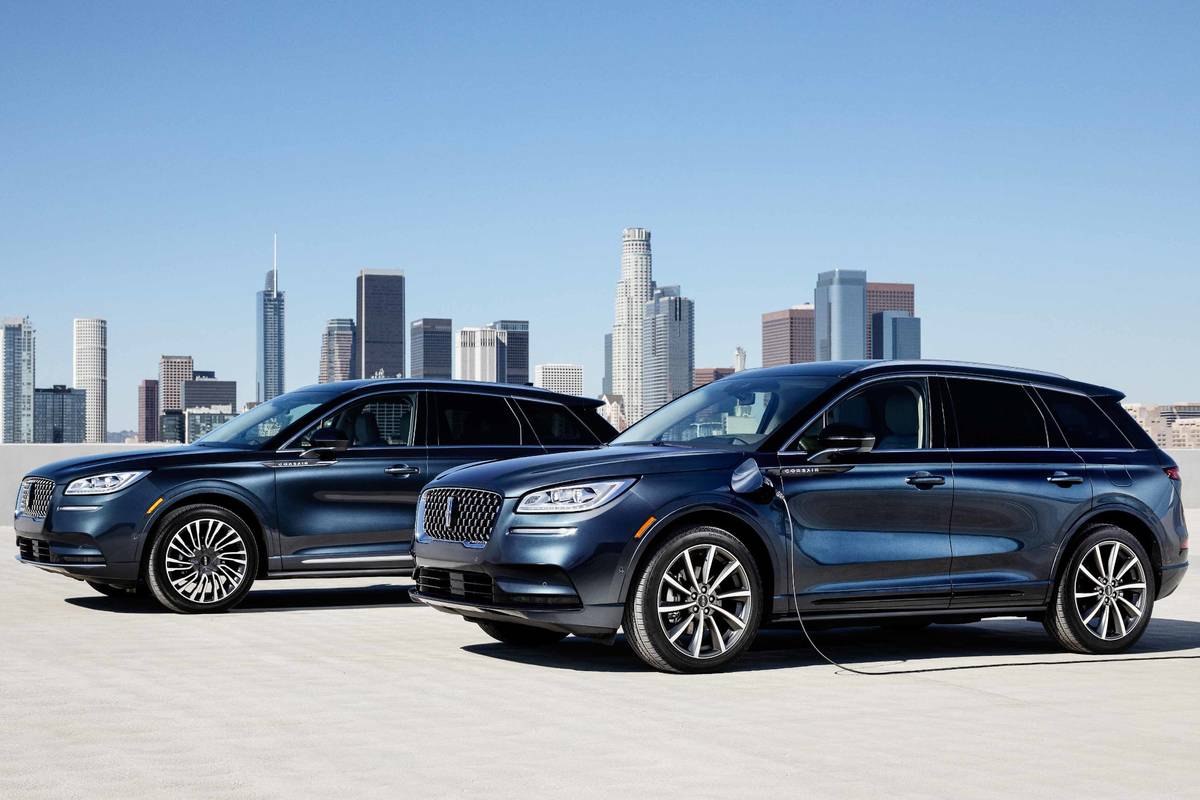
Competes with: Mercedes-Benz GLC350e, Lexus NX Hybrid
Looks like: The recently introduced Corsair with some blue badges
Powertrains: An estimated 266-horsepower system; 2.5-liter Atkinson-cycle four-cylinder gas engine and hybrid electric motor; continuously variable transmission; standard all-wheel drive
Hits dealerships: Summer 2020
Lincoln has added another plug-in-hybrid SUV to its lineup with the unveiling of the new 2021 Lincoln Corsair Grand Touring. Like the larger, more expensive Lincoln Aviator Grand Touring, the Corsair Grand Touring is a plug-in model, differentiating it from its Ford Escape Hybrid cousin and featuring a considerably different powertrain and standard all-wheel drive.
Related: More 2019 L.A. Auto Show Coverage
- ${price_badge()}
- ${ami_badge()}
- ${battery_badge()}${ev_report_link()}
- ${hot_car_badge()}
- ${award_badge()}
- ${cpo_badge()}
${price_badge_description}
${ami_badge_description}
The EV Battery Rating is based on this vehicle's current expected range relative to the vehicles expected range when new. ${battery_badge_text}
Certified cars are manufacturer warrantied and typically go through a rigorous multi-point inspection.
This car is likely to sell soon based on the price, features, and condition.
${award_blurb}
${award_two_blurb}
Shop the 2020 Lincoln Corsair near you

Exterior
On the outside, not much is different on the Grand Touring. The only clues that this is the PHEV version of the new Corsair are the unique grille with blue Lincoln star badge, special 20-inch wheels, a charge port door on the front left fender and Spirit Blue badging elsewhere on the vehicle.
Interior
Likewise on the inside, there are very few cues to let you know that you’re in a different version of the Corsair. You still get the same swanky, spacious, multi-adjustable interior that you get in other versions of the new compact crossover, but the differences might not become known until you start driving. Additional sound-dampening materials and active noise cancellation technology should combine with the electric operation of the Corsair Grand Touring to make the crossover even quieter.
You still get sliding second-row seats with 6-inch fore-and-aft travel and 60/40-split, folding rear bench. The Corsair Grand Touring’s battery is packaged flat and under the floor, and Lincoln says that the cargo area can still accommodate four full-size suitcases or four sets of golf clubs — but it very carefully does not say if the Grand Touring actually provides less cargo room than non-hybrid trims, only that luggage space and legroom have been “maximized.” Up front, the 24-way adjustable Perfect Position seats are optional.
Under the Hood
Here’s where we get to some big differences from other versions of the Corsair. The powertrain is a combination of a 2.5-liter Atkinson-cycle four-cylinder gas engine and an electric motor mated to an electric continuously variable transmission that, itself, employs two small electric motors to drive the gears. This all drives the front wheels, with a Lincoln-estimated combined system output of 266 horsepower. The rear wheels are driven solely by a dedicated electric motor (that’s four electric motors in total, if you’re keeping score) that’s employed when all-wheel drive is called for. The battery pack is a 14.4-kilowatt-hour lithium-ion unit, which Lincoln says should be good for at least 25 miles of full-electric operation. Charging takes 10 to 11 hours on a Level 1, 120-volt household outlet, dropping to three to four hours on a Level 2, 240-volt charger. DC fast charging capability is apparently not available.
There are several drive modes that can be employed by the user, depending on conditions. The Corsair’s Normal mode operates as a typical hybrid, with the vehicle deciding when to employ both powertrains for optimal efficiency. The Conserve mode is meant to dull vehicle responses, allowing for smoother (slower) operation that acts as an “Eco” mode. When you get bored with that, Excite operates as a Sport mode, firming up pedal responses and suspension damping, and improving battery-coolant flow for anticipated heavy electrical draws. Slippery mode reduces power to the wheels and slows throttle response for slippery conditions, and Deep Conditions changes pedal progression and power output to accommodate deep snow or dry sand.
In addition to these, you can opt for Pure EV mode to keep the Corsair Grand Touring in electric-only operation (until the battery runs out) or Preserve EV mode, which maintains and even charges the battery using the gas engine, enabling a recharge of up to 75 percent and allowing the driver to employ Pure EV mode later in their drive. This is useful for commutes to an area that employs a congestion charge, allowing the driver to leave the house with a full or partial charge and still use highways without depleting the battery before arriving in an area that charges internal combustion a fee.
Safety
As with other models, Lincoln Co-Pilot360 is standard, and includes precollision assist with automatic emergency braking, blind spot detection with cross-traffic alert, automatic lane keep assist, a rearview camera and automatic high beams. You can upgrade to Lincoln Co-Pilot360 Plus, which adds adaptive cruise control with traffic jam assist, evasive steering assist, reverse automatic emergency braking and active park assist plus. You can also add a head-up display for an additional fee.
The new Lincoln Corsair Grand Touring is set to grace the Lincoln showroom in summer 2020, with pricing announced closer to the on-sale date.
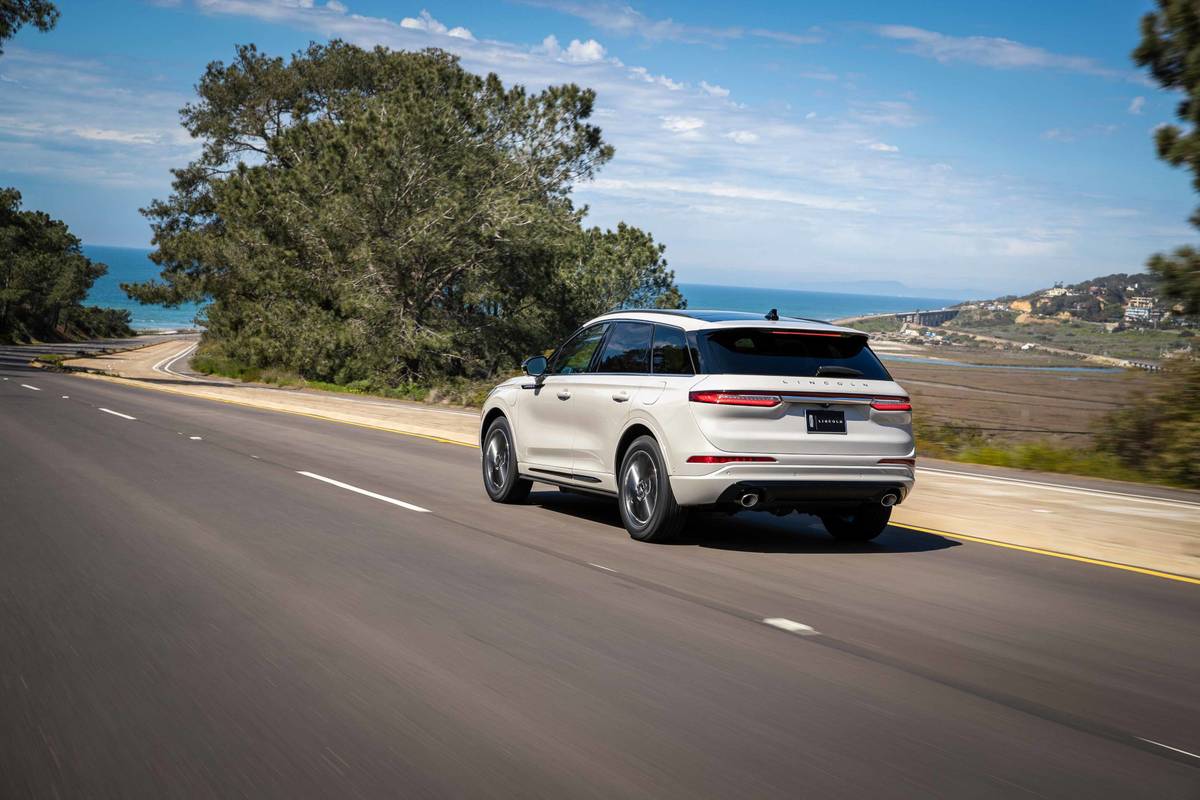
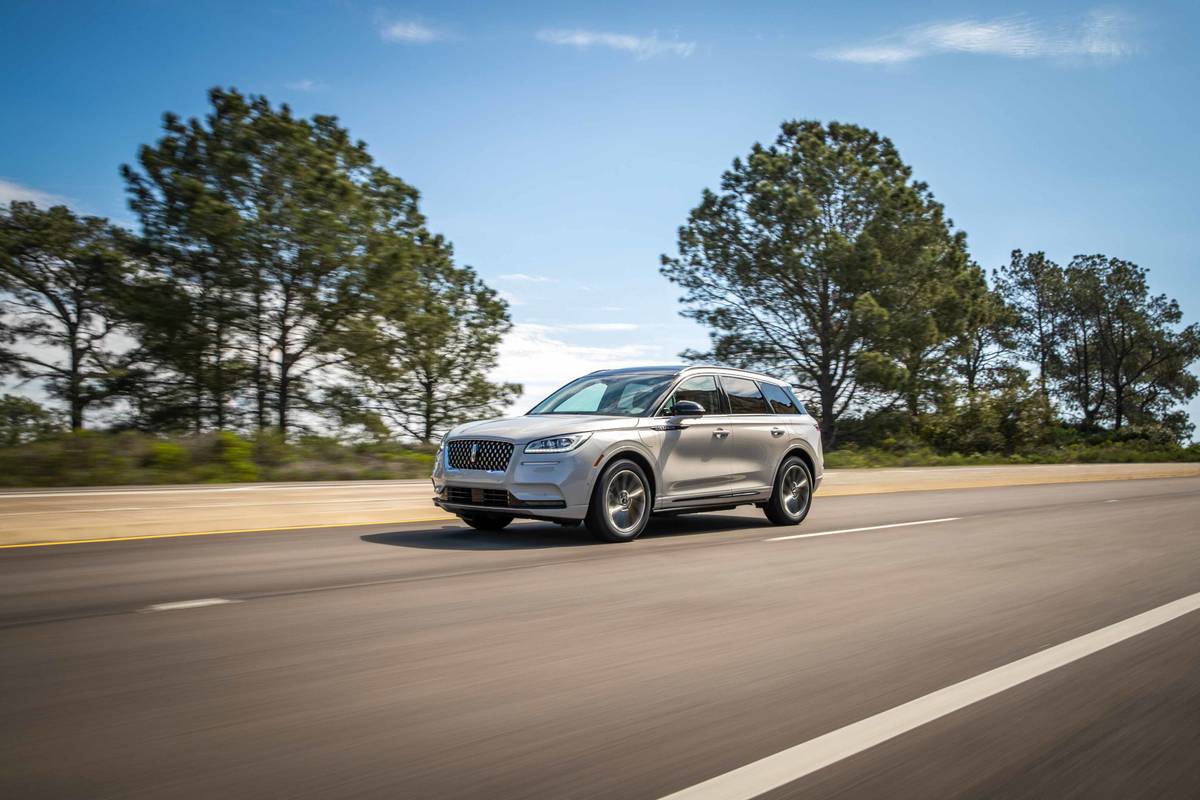
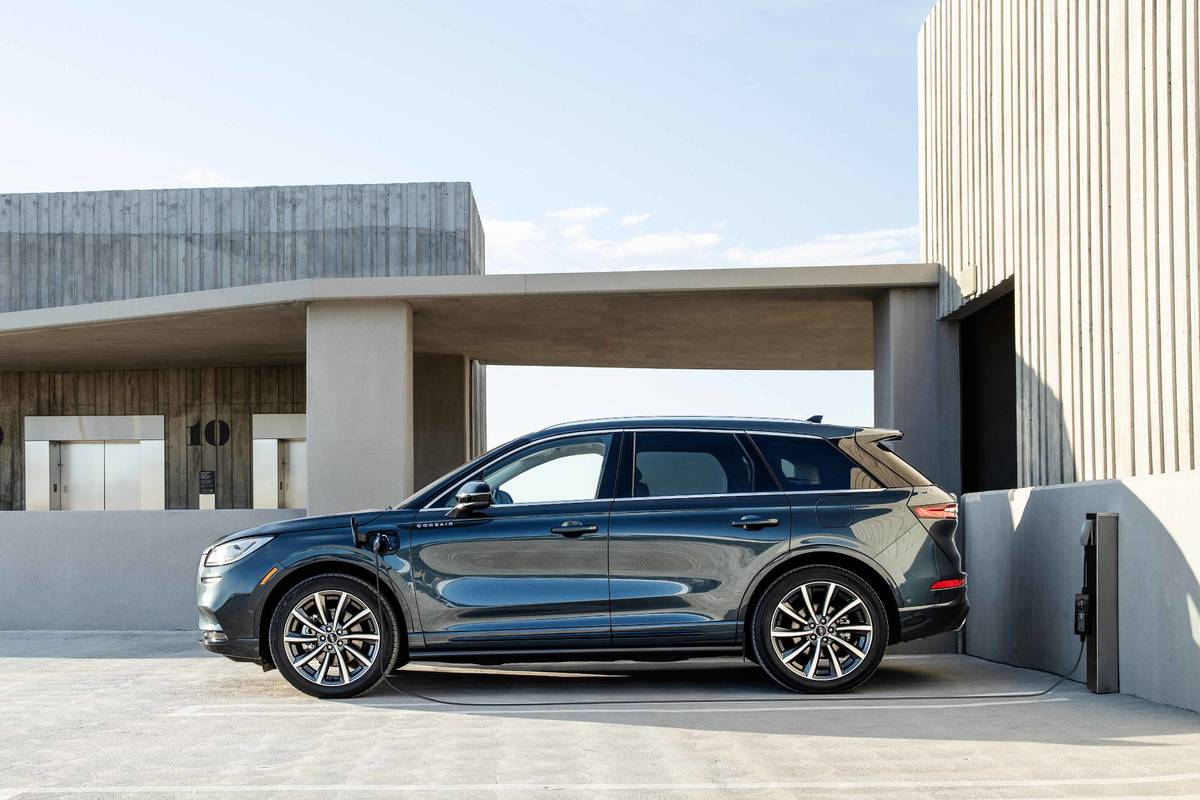
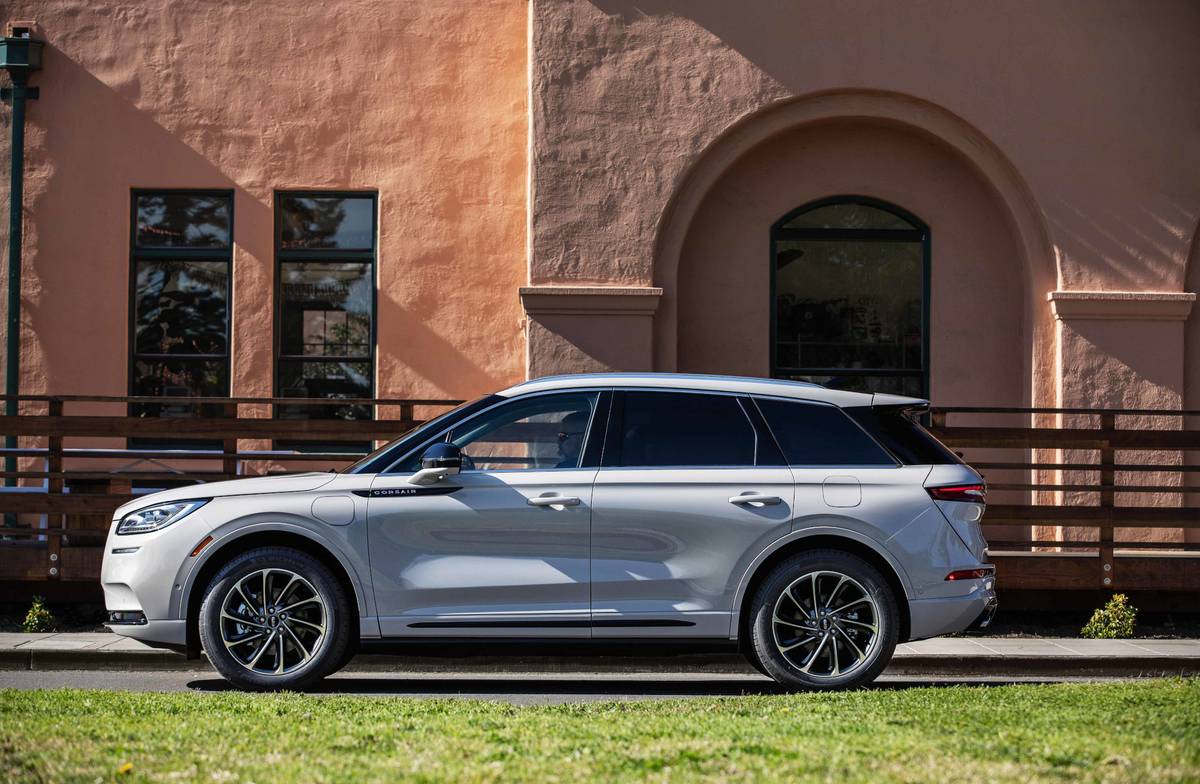
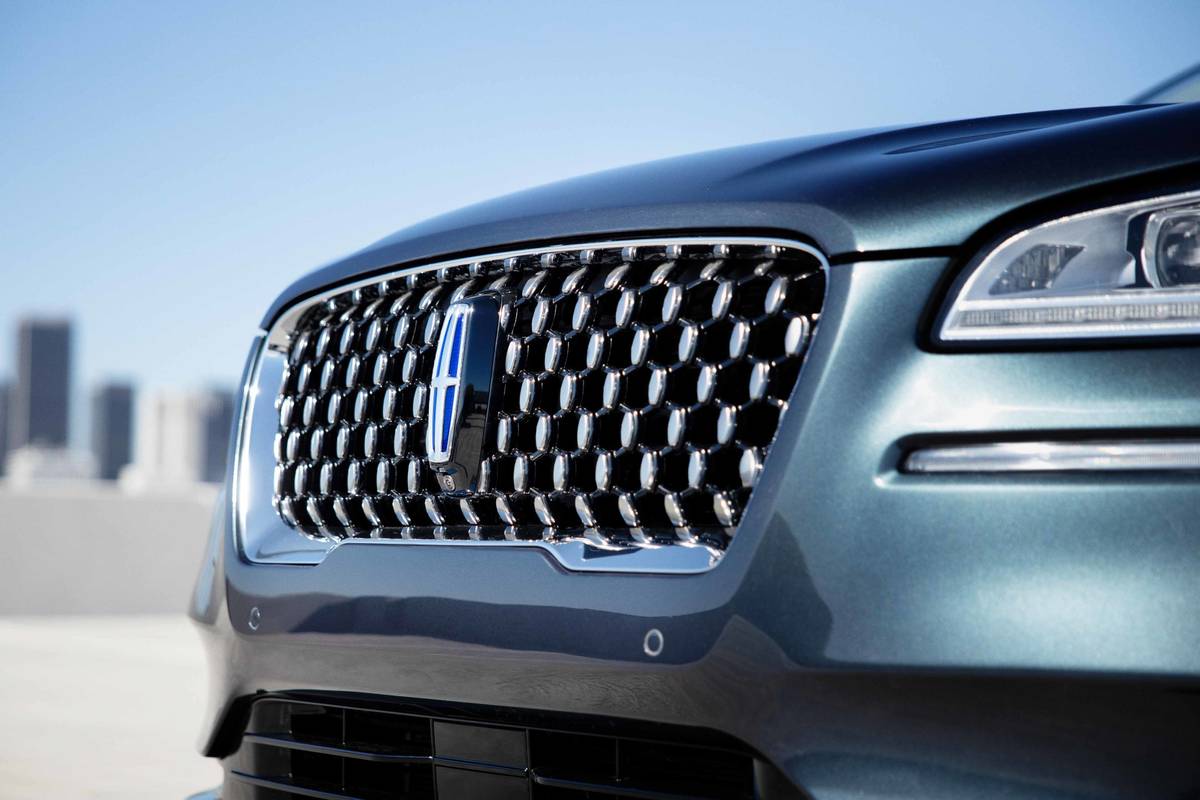
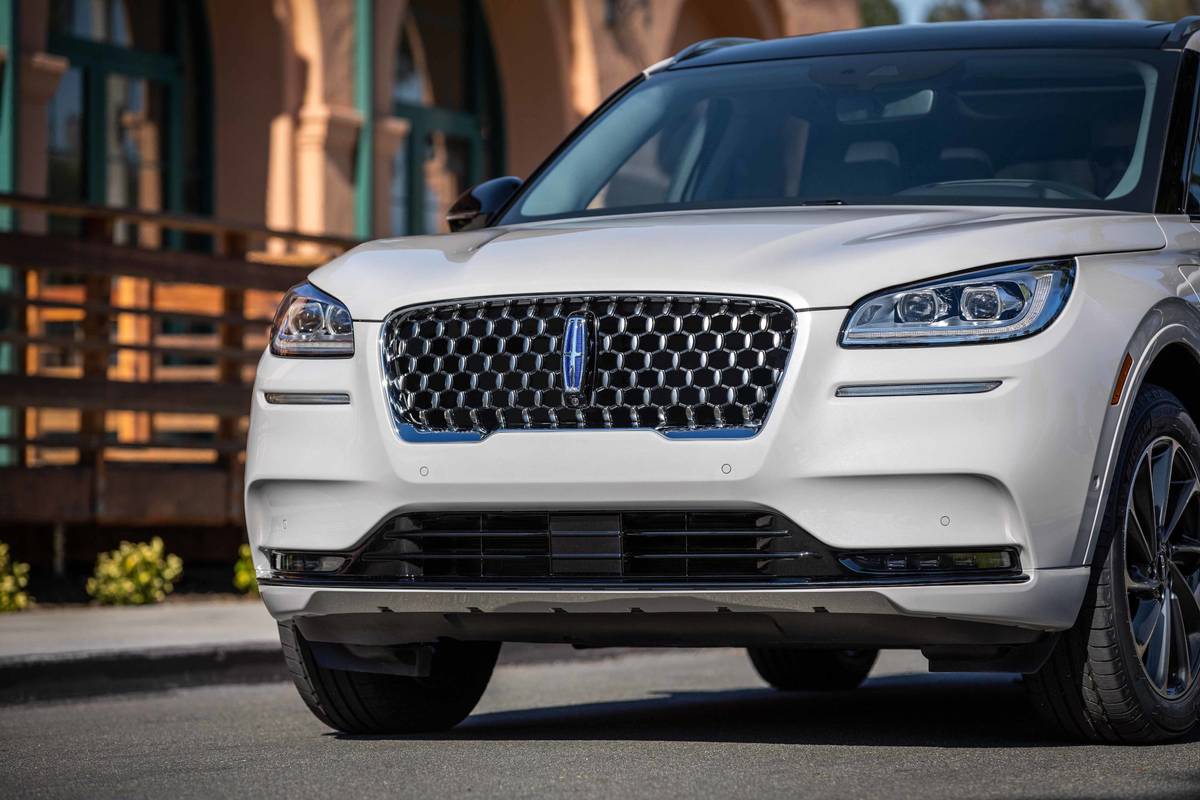
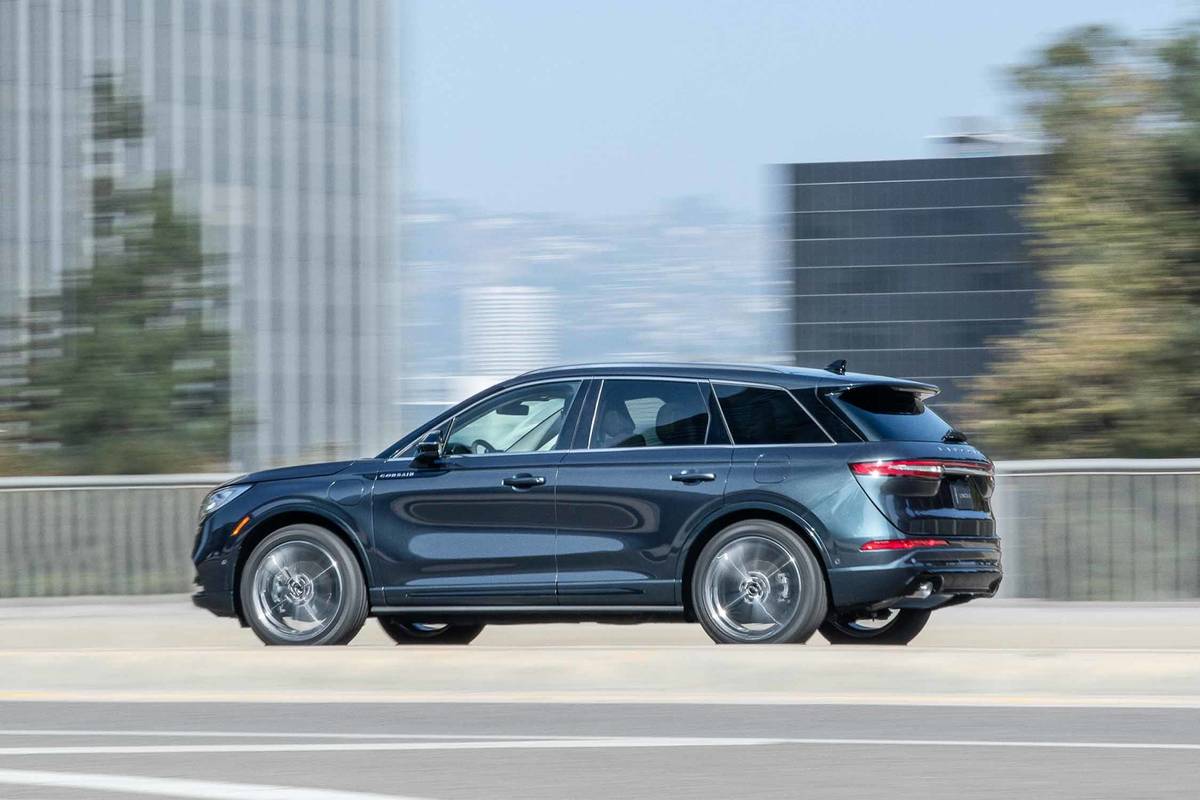
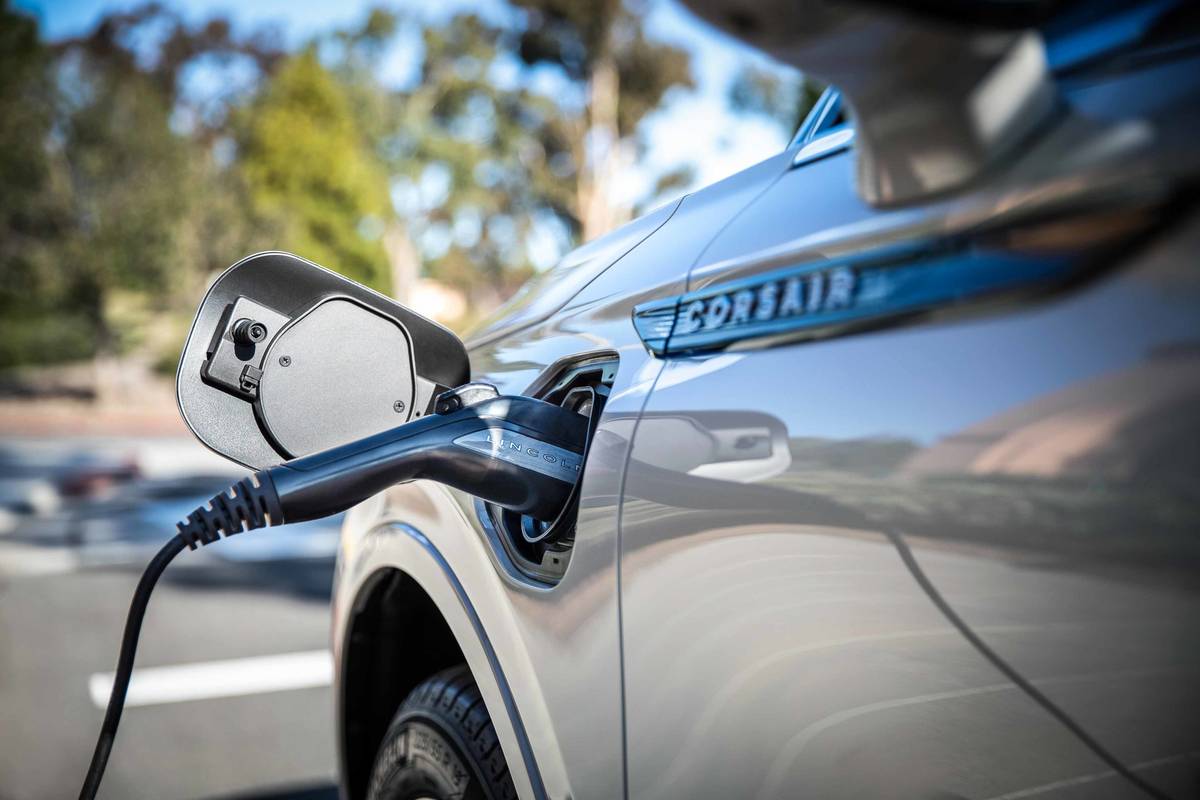

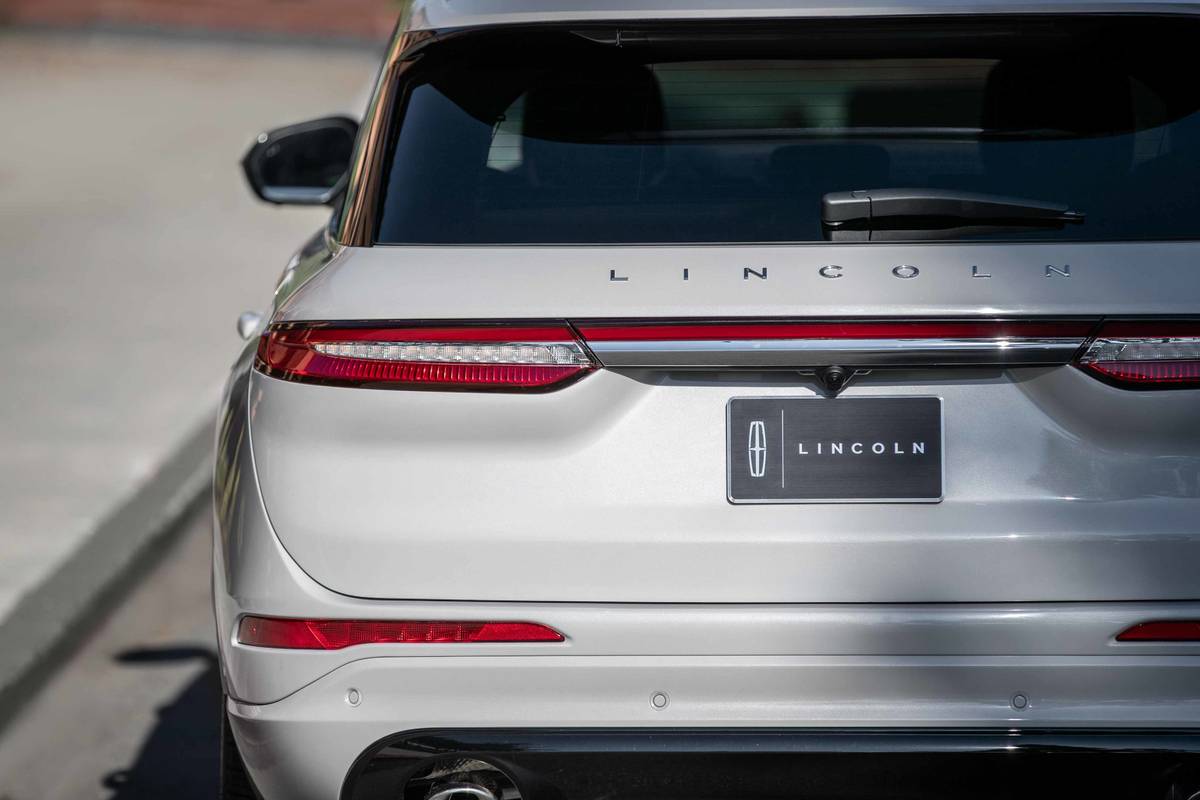
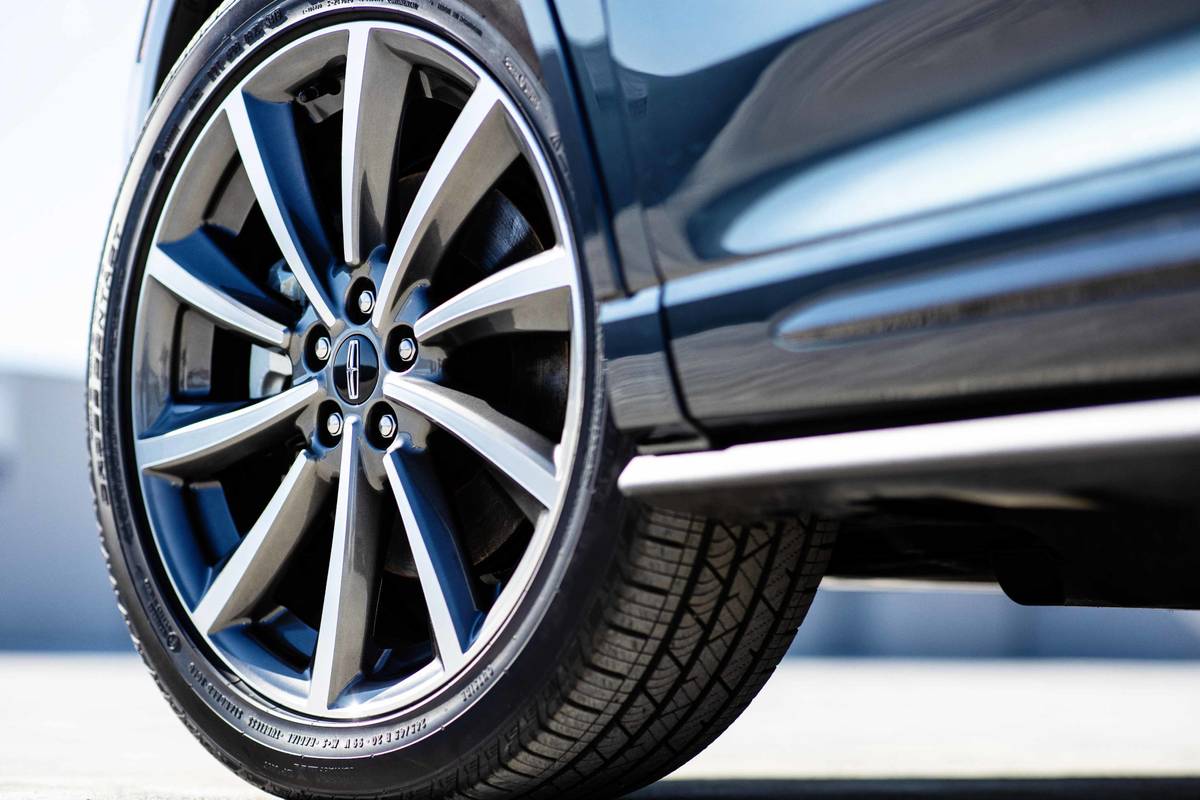

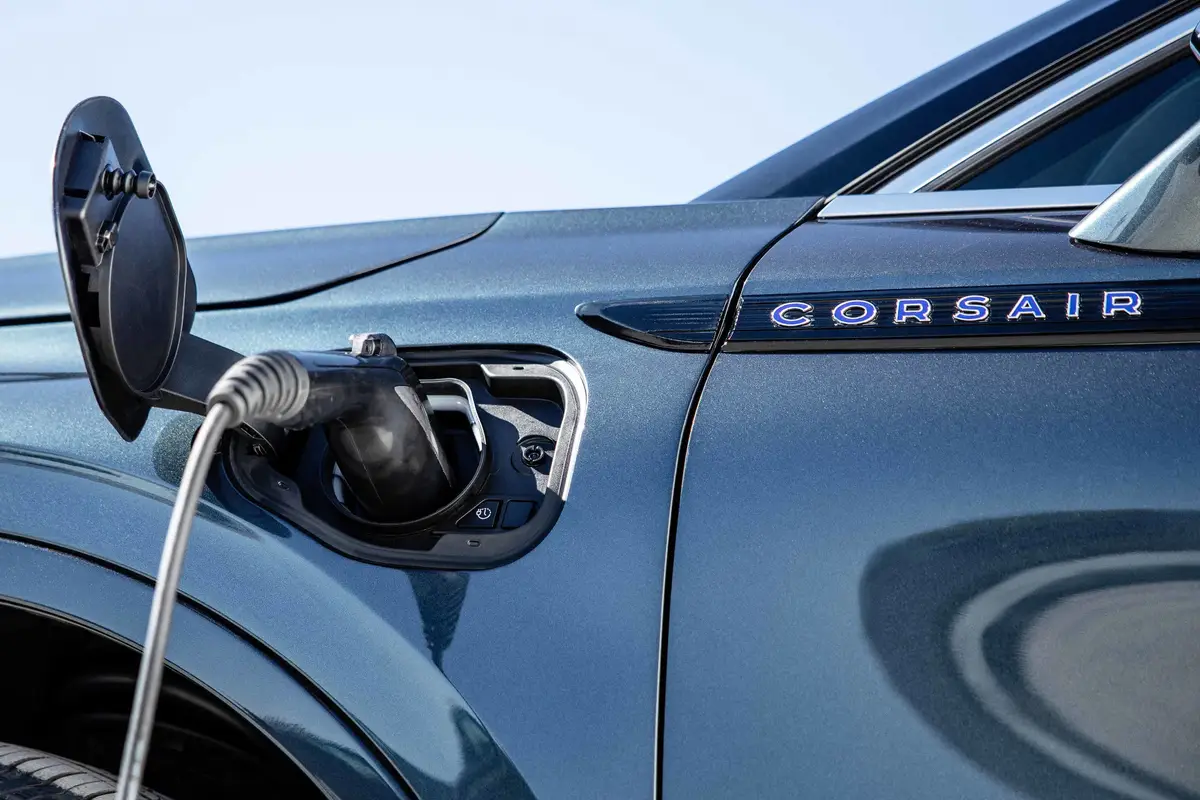













Editor’s note: This story was updated Nov. 21, 2019, to accurately characterize the Corsair’s all-wheel-drive system.
Cars.com’s Editorial department is your source for automotive news and reviews. In line with Cars.com’s long-standing ethics policy, editors and reviewers don’t accept gifts or free trips from automakers. The Editorial department is independent of Cars.com’s advertising, sales and sponsored content departments.

Detroit Bureau Chief Aaron Bragman has had over 25 years of experience in the auto industry as a journalist, analyst, purchasing agent and program manager. Bragman grew up around his father’s classic Triumph sports cars (which were all sold and gone when he turned 16, much to his frustration) and comes from a Detroit family where cars put food on tables as much as smiles on faces. Today, he’s a member of the Automotive Press Association and the Midwest Automotive Media Association. His pronouns are he/him, but his adjectives are fat/sassy.
Featured stories

















